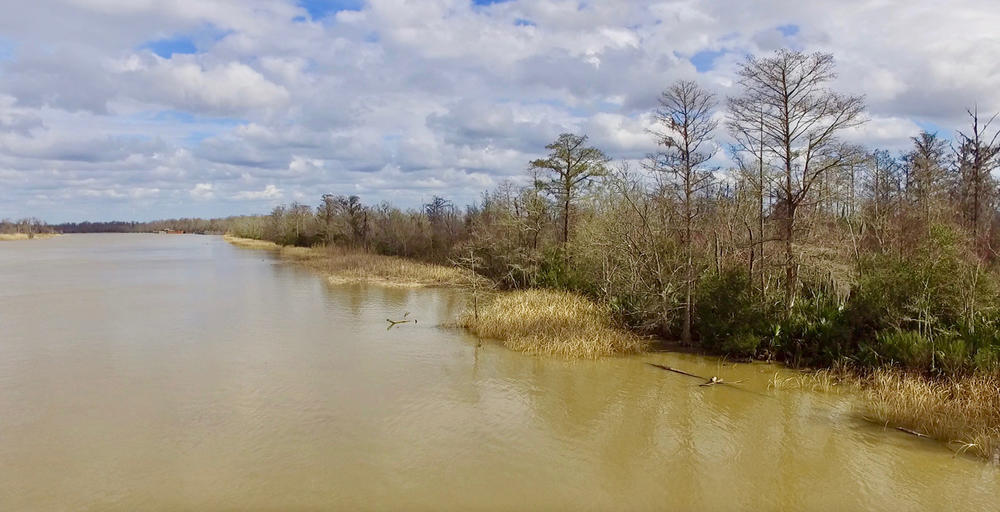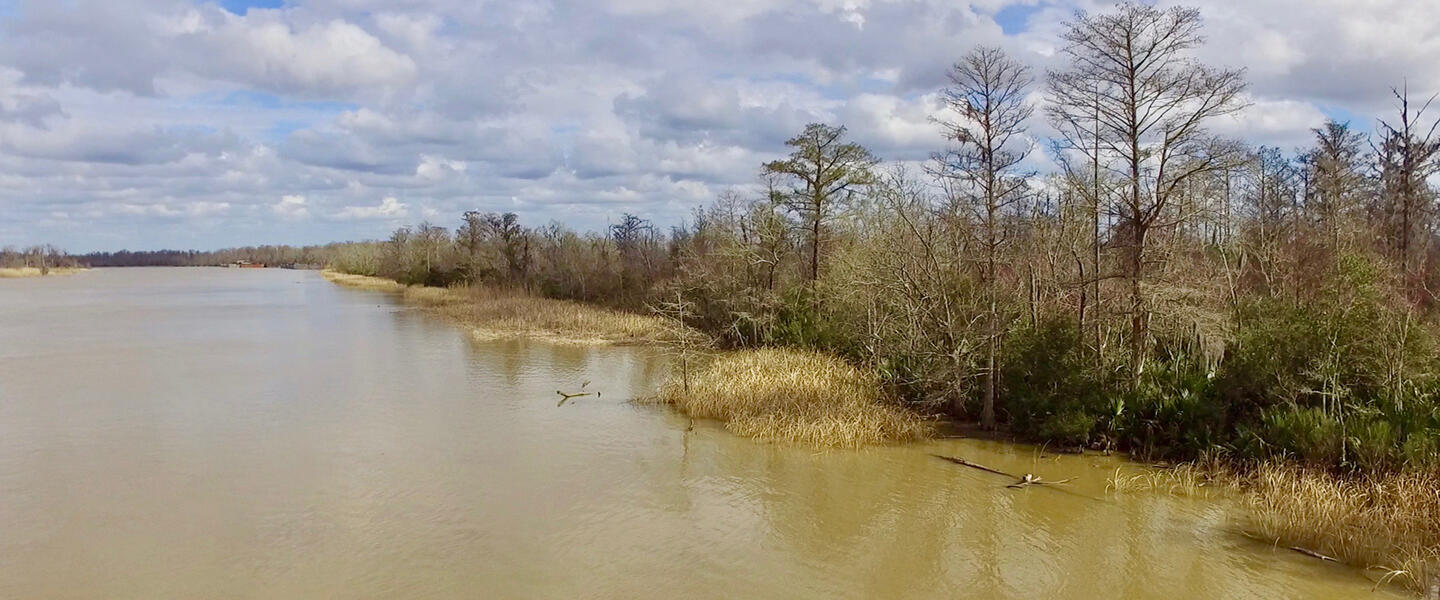
Caption
The stretch of shoreline where the Clotilda was discovered. It is in the Mobile River alongside 12-Mile Island.
Credit: Ben Raines/Salvation South
There is a very significant community down on Alabama’s Mobile Bay called Africatown — established after the Civil War by formerly enslaved people, who were brought to America aboard the illegal slave ship Cotilda, the last to land on this country’s shores. Over time, Africatown became one of the largest African American-governed communities in America.
Salvation South editor Chuck Reece has the story in this week’s commentary.

The stretch of shoreline where the Clotilda was discovered. It is in the Mobile River alongside 12-Mile Island.
Chuck Reece - Salvation South Editor: The Clotilda should never have arrived in America. The ship's mission was illegal from the get go.
In 1808, a federal law banned the importation of any additional slaves to America. But 51 years later, in 1859, an Alabama slaver named Timothy Meaher decided to defy that law and commissioned the Clotilda to sail to West Africa, capture Africans, and bring them back to Mobile.
But not long after, Congress passed the 13th Amendment, abolishing slavery forever. And so after spending six years in bondage, the 110 captured Africans who came here on the Clotilda began to build their own self-sustaining community on the shores of Mobile Bay.
They called it Africatown. By the 1920s, it had become one of the largest communities in the nation to be governed by African Americans.
In 2018, a Mobile journalist and diver named Ben Raines found the wreckage of the Clotilda off 12 Mile Island in the Mobile River. Back in the 19th century, the ship had been burned and sunk to conceal the evidence of its illegal voyage. The discovery of the ship brought national attention to the story of Africatown, and it prompted the creation of Descendant, a documentary film about the community that's now streaming on Netflix.
This is Clotilda descendant Vermetta Henson.
Vermetta Henson - Clotilda descendant: That was the whole purpose of burning it, to keep it from ever being found. And as far as I can remember, it's never been in history books.
Chuck Reece - Salvation South Editor: In a story for Salvation South, the online magazine I edit, Ben Raines told us, "the ship is going to be the vehicle that carries Africatown to new prosperity. It's the origin story for the African diaspora. It's the only story we have in the historical record, cradle to grave, of enslaved people — because they were interviewed so often. ... We have this from 11 voices; 11 people who were interviewed extensively about their enslavement and about their lifelong longing for home."
The prosperity Raines envisions is the fondest wish of folks like Joycelyn Davis, who was born and raised in Africatown. She told us, "I've always grown up with the story. The story has been told in the community. It's been told in our church, Union Baptist, and it's been told in the family. But for it to go global — and it's going to go global — that's just amazing."
I believe it's important for all of us as Southerners to understand and take to heart the story of Africatown. It's a narrative that begins in the sins of our past and takes us all the way through to the hope for a brighter and more just future.
Come visit us at SalvationSouth.com.
Salvation South editor Chuck Reece comments on Southern culture and values in a weekly segment that airs Fridays at 7:45 a.m. during Morning Edition and 4:44 p.m. during All Things Considered on GPB Radio. You can also find them here at GPB.org/Salvation-South and now on your favorite podcast platforms as well.
